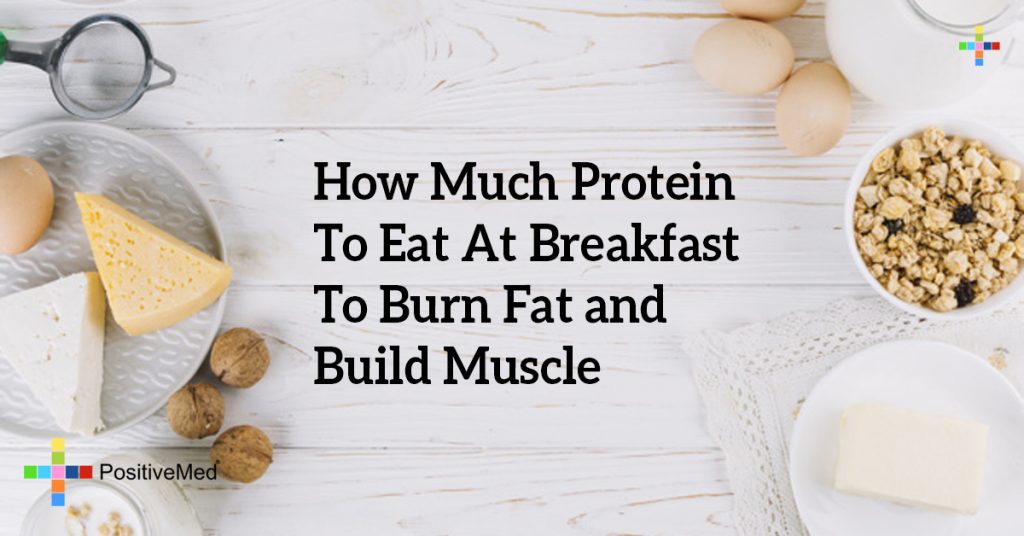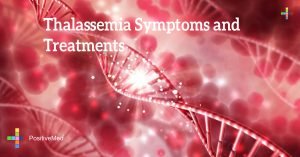
[nextpage title=”…”]
How Much Protein To Eat At Breakfast To Burn Fat and Build Muscle
Protein is the body’s basic building block. It is integral to the growth of muscles, hair, nails, skin and other tissues. Protein is made from amino acids, when linked together in different formats they make specific proteins. Of the 20 amino acids, 8 are derived exclusively from food sources.
Protein is necessary for the normal functioning of the human body, assisting in the performance of a wide range of functions. Protein is vital for the repair and restoration of our muscles, which is needed following exercise, or after an injury. Some proteins help rebuild cells. Others transport nutrients. The body’s enzymes are all proteins, and they make chemical reactions throughout the body. The protein hemoglobin, carries oxygen to cells throughout the body.
RELATED ARTICLE: 9 Best Protein Options For Weight Loss
Much of the body’s protein must be consumed from food sources. High protein foods are those containing the most complete proteins and therefore the best sources, such as red meat. Medium protein foods are considered incomplete proteins, containing 6 to 14 percent protein. They must be combined with other proteins to form a complete protein. This includes foods such as wheat, oats, rice, millet and barley. The low protein foods include fruit, juices and some vegetables. They contain even less protein than the medium protein foods, in the 5 percent or less range.
The average protein requirement an American adult should consume is as follows:
- 0.8 g/kg/day which is the equivalent of 0.4 g/lb/day
Athletes tend to have greater daily protein requirements, and it varies according to their training and exercise regiments:
- Strength training = 1.4 to 1.8 g/kg/day or 0.6 to 0.8 g/lb/day
- Runners & endurance training = 1.2 to 1.4 g/kg/day or 0.5 to 0.6 g/lb/day
- Overall Athlete Range = 1.0 to 1.8 g/kg/day or 0.4 to 0.8 g/lb/day
Where: g = gram, kg = kilogram, lb = pound
The National Academies of Sciences, Engineering, Medicine, Institute of Medicine, in September 5, 2002 reaffirmed the recommended levels of protein intake as 0.8 g/kg of body weight for adults and higher for pregnant women. The Food and Nutrition Board’s 5th report indicated that adults should receive 10 to 35 % of calories from protein. Of course that rate is for normal circumstances, for the average American or Canadian.
[/nextpage] [nextpage title=”…”]
A sufficient amount of high quality protein is extremely important when pregnant and in our senior years.
Although, on average, each adult American consumes approximately 1.5 g/kg/day (or 0.7 g/lb/day) of protein in their diet, there is rarely reason to require additional protein or supplements. Instead, there has been concern that eating too much protein may have its own set of consequences.
The research is inconclusive and controversial, but suggests the possibility of kidney damage, dehydration, loss of bone minerals and weight gain from ongoing and excessive protein consumption.
Speaking of macro nutrients, they are the “large” or macro nutrients, protein, carbohydrates and fats required by the human body for normal functioning including that of metabolism and growth.
RELATED ARTICLE: What a High Protein Diet Can and Can’t Do For You?
Furthermore, studies have found that consuming a maximum amount of protein for breakfast can facilitate fat burning throughout the entire day and can cause food satiety. In other words, feeling full occurs throughout the entire day and night, where otherwise ongoing eating was the case.
A maximum of 24 to 30 g of protein for breakfast appears to achieve the best result, where more protein did not necessarily enhance the fat burning results significantly or the extent of fullness experienced throughout the day. Protein is particularly filling because of the effort required by the body to digest, metabolize and break it down. The lengthy digestion, keeps you full longer and tends to help make better food choices during the day.
A typical breakfast may have 14 g of protein but 30 g is not insurmountable.
Tasty and High Protein Recipes:
1. Egg and Shrimp Pita (39 g of protein, 39 % protein, 396 calories)
1/3 cup of egg substitute scrambled and mix-in 2 ounces of cooked shrimp. Place onto a whole wheat pita bread. Shred 2 ounces of low-fat cheese and top along with sour cream and salsa. Add an orange or peach on the side.
2. Sausage and Rice with Yogurt and Fruit (37 g of protein, 39 % protein, 373 calories)
2/3 cup of egg substitute scrambled, pork sausage and ½ cup of cooked brown rice. Eat with plain yogurt and a fruit.
3. 3 Scrambled eggs (30 g of protein)
Add 2 ounces of diced cooked ham and 2 tbsp of red pepper, top with grated cheese.
RELATED ARTICLE: Homemade Protein Bars
Increasing the protein in the first meal of the day has been a boon for addressing not just obesity, but for improving the efficiency of the body’s fat burning potential. In addition, this enhances the body’s ability to recognize satiety, and in turn make more rational food choices throughout the day.
[/nextpage]





